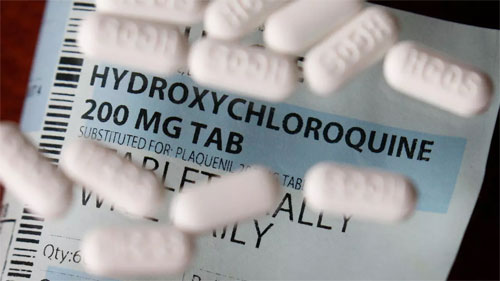Hydroxychloroquine cut death rate in half in study, Henry Ford says
Treatment with hydroxychloroquine cut the death rate in half for sick patients hospitalized with COVID-19 and without heart-related side-effects, according to a new study published by Henry Ford Health System.

An analysis of the study of 2,541 patients who were hospitalized between March 10 and May 2 at Henry Ford’s six metro-Detroit hospitals shows that 13 percent of those treated with hydroxychloroquine died compared to 26.4 percent of patients who died and were not treated with hydroxychloroquine, according to hospital officials.
“Our analysis shows that using hydroxychloroquine helped saves lives,” said Steven Kalkanis, CEO of Henry Ford Medical Group and senior vice president and chief academic officer of Henry Ford Health System. “As doctors and scientists, we look to the data for insight. And the data here is clear that there was benefit to using the drug as a treatment for sick, hospitalized patients.”
Hydroxychloroquine has been touted by President Trump but was removed by the Federal Drug Administration from use at U.S. hospitals for COVID-19 other than for trials.
Marcus Zervos, division head of Infectious Disease for Henry Ford Health System, who co-authored the study, said at a news conference the drug should be used in certain circumstances not only in the United States but worldwide because some countries don’t have access to other drugs.
“It needs to be used early. It needs to be used in a hospital setting,” Zervos said. “I think it does have a role. I think it does have a role internationally, especially because it’s inexpensive and has potential for benefit.”
A secondary result indicates that black patients who were part of the study died at a lower rate than white patients, which counters national reports that blacks suffer more from COVID-19, officials said. Blacks have contracted the novel coronavirus at a higher rate that other groups.
“The very interesting fact is that once patients became sick and were admitted to the hospital, we actually saw a higher death rate amongst the white population,” Kalkanis said. “Certainly more studies are needed, but what that tells us that, potentially, African-American patients benefited significantly from this drug.”
The results were published in the International Journal of Infectious Diseases, a peer-reviewed publication of the International Society of Infectious Diseases.
The vast majority of the patients received the drug soon after admission before severe symptoms hit: 82% within 24 hours and 91% within 48 hours of admission. All of the patients in the study were 18 or over with a median age of 64 years old; 51% were men and 56% were African American.
“For hydroxychloroquine to have a benefit, it needs to be given before the patient suffers some of the severe immune reactions that can occur with COVID,” Zervos said.
Zervos said hydroxychloroquine worked best when used in combination with steroids, both early in the process, and then later with the drug Remdesivir.
“We know that in the management of the patients, there’s a combination of interventions needed,” he said.
The doctors emphasized this is only one study and among other studies being performed, including another a Henry Ford study of the prophylactic benefits of hydroxychloroquine.
They noted each study is different, and this study had the distinct characteristics of early dosage, no patients with cardiac issues and unique dosage.
Many of the patients, all of whom were admitted to hospitals, entered with “underlying diseases,” Zervos said, including 63 percent having chronic lung problems and 43 percent having chronic kidney problems.
In addition to a higher mortality rate for whites, higher death rates were reported for those patients older than 65, with reduced oxygen levels and/or requiring admission to the intensive-care unit. Eighty-eight percent died from respiratory failure.
In the prophylactic hydroxychloroquine study, 619 frontline healthcare workers and first-responders so far are participating, with a target of 3,000, officials said. The randomized, double-blind study is looking at whether hydroxychloroquine prevents them from contracting the virus.
Hydroxychloroquine (aka hydroxychloroquine sulfate) is an FDA-approved medicine commonly used to treat arthritis, lupus or other rheumatic conditions but also can be used to prevent or treat malaria, officials said. It is available in the United States by prescription only. The drug is sold under the brand name Plaquenil and it is also sold as a generic medicine.
yogaesoteric
July 16, 2020
